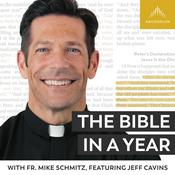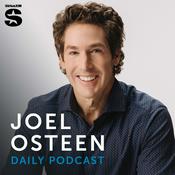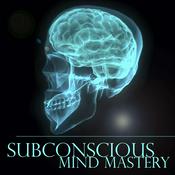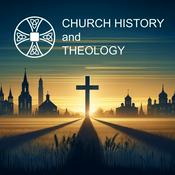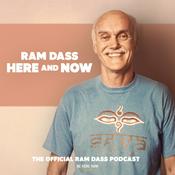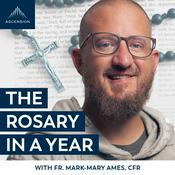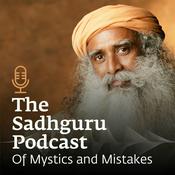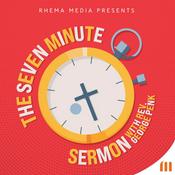126 episodes
Ep 122: Philip Yancey, Shattered Trust, and Rebuilding Your Integrity, with Kurt Bubna
19/2/2026 | 38 mins.Karl Vaters talks with Kurt W. Bubna about what to do if you’re a Christian leader who has betrayed people and broken trust. This conversation was sparked by the Facebook post, An Open Letter to Philip Yancey Regarding His Extramarital Affair, that Bubna wrote in early January.
So many have opined about Yancey, and understandably so, but most of them know little if anything about his situation, including Karl and Kurt. So, while this conversation was triggered by that news, it’s an attempt at a measured approach from a perspective that we need to hear—a pastor who broke trust and is rebuilding it again. This conversation focuses on practical help for anyone who is walking through a similar time of sinful behavior, by talking through Kurt’s helpful article, How to Rebuild Trust After You’ve Broken It.
Links:
An Open Letter to Philip Yancey Regarding His Extramarital Affair
How to Rebuild Trust After You’ve Broken It
Kurt Bubna’s Amazon author page
KurtBubna.com
To get Bonus Content every week, click here to become a Financial Partner, or here to subscribe to the Free Weekly Newsletter.Ep 121: Six Big Shifts In How People Volunteer—And How To Respond, with Laurie Graham
05/2/2026 | 51 mins.Karl Vaters talks to Laurie Graham about some of the big ways volunteerism has changed, and how we, as church leaders, can respond to these trends.
Laurie runs smallchurchministry.com, an online ministry that provides resources and support for volunteers and ministry leaders in smaller churches.
This is Laurie’s second time on the podcast (the last time she was known as Laurie Acker), and in this conversation she and Karl talk about how church volunteerism has been affected by people’s changing schedules, their desire for deeper meaning, the need to restore their trust, and more.
Links:
Website: https://smallchurchministry.com/
Instagram: https://www.instagram.com/smallchurchministry/
Facebook: https://www.facebook.com/smallchurchministry
Creative Solutions for Small Churches Facebook Community: https://www.facebook.com/groups/smallchurchministry
Small Church Network & Academy: https://smallchurchministry.com/membership/
Bonus Content Summary
Rethinking Church Programs for Volunteer Flexibility, with Laurie Graham
Karl Vaters talks with Laurie Graham of SmallChurchMinistry.com about different ways we, as church leaders, can start to change church programs that were originally designed for the way people used to volunteer, into ministry that works for the more personal, seasonal way people live and commit today.
Website: https://smallchurchministry.com/
Instagram: https://www.instagram.com/smallchurchministry/
Facebook: https://www.facebook.com/smallchurchministry
Creative Solutions for Small Churches Facebook Community: https://www.facebook.com/groups/smallchurchministry
Small Church Network & Academy: https://smallchurchministry.com/membership/
To get Bonus Content every week, click here to become a Financial Partner, or here to subscribe to the Free Weekly Newsletter.- Karl Vaters talks through some helpful guidelines with Dave Ripper about how to read, meditate, and teach from the Bible in a richer, deeper way.
Dave is the lead pastor of Crossway Christian Church, a multicongregational church in southern New Hampshire, focused on spiritual formation, and is the author of Experiencing Scripture as a Disciple of Jesus: Reading the Bible like Dallas Willard.
Karl and Dave explore who Dallas Willard was, and what his way of reading the Bible can do for us, including:
Willard’s four steps on how to read the Bible
A five-step outline for meditating on a text
The IMMERSE method
Preaching out of the overflow
How to let God speak to the church instead imposing your ideas into the text or onto the congregation
Links:
Experiencing Scripture as a Disciple of Jesus: Reading the Bible like Dallas Willard, by Dave Ripper
The Dallas Willard podcast
DaveRipper.com
Deeper Experiences with God Podcast, with Dave Ripper
Dave Ripper on Instagram
Dave Ripper on Facebook
Contact Dave Ripper
Bonus video summary
Three Warnings from Dallas Willard about How Not to Read the Bible, with Dave Ripper
In this subscriber-only bonus material, Karl Vaters talks with pastor Dave Ripper, the author of Experiencing Scripture as a Disciple of Jesus: Reading the Bible like Dallas Willard, about why Bible readers should stay away from:
Bible roulette
The “It’s all in the Bible” View
Bible deism
To get Bonus Content every week, click here to become a Financial Partner, or here to subscribe to the Free Weekly Newsletter. - Have you ever gone to a church growth conference and been told “all healthy things grow?”
Karl Vaters talks with Jeff Hoglen about what’s happening behind that idea, and why it can be a problem for a lot of pastors and churches. The conversation is based on an article Jeff wrote, called “The Church Growth Lie No One Talks About.”
Karl and Jeff talk about what that lie is, why we keep believing it, and what to do, instead.
They also discuss alternative ways to look at church health and growth, including:
How growth feels more like farming than fireworks
How most real growth is slow, often invisible, and always hard
How the slow seasons don’t have to discourage you
How to deepen before you broaden
How to pursue health over hype
The importance of celebrating the small stuff
And more.
Links:
The Church Growth Lie No One Talks About
ChurchPlanting.com
Canva
ChatGPT
To get Bonus Content every week, click here to become a Financial Partner, or here to subscribe to the Free Weekly Newsletter. - Karl Vaters talks with Brad Edwards about the shift that’s happened over the last decade or so in how people perceive institutions, especially the institutional church.
In this conversation they talk about how the rise of radical individualism has replaced once-trusted institutions, why a distrust in institutions is problematic, and why institutions—especially the church—still matter.
Brad is a church planter and pastor of The Table Church in Lafayette, CO. He’s also the author of, The Reason for Church: Why the Body of Christ Still Matters in an Age of Anxiety, Division, and Radical Individualism. This conversation also includes an overview of the reasons behind the loss of institutionalism, and especially five Church Defeaters:
Church Defeater 1: Spiritual Pragmatism
Church Defeater 2: The Sacred Self
Church Defeater 3: Counterfeit Institutions
Church Defeater 4: (Un)Civil religions
Church Defeater 5: Virtuous Victimhood
(CONGRATULATIONS to Brad on his book being named Book of the Year by Christianity Today magazine!)
Links:
The Reason for Church: Why the Body of Christ Still Matters in an Age of Anxiety, Division, and Radical Individualism
Mere Orthodoxy
BONUS TALK
Our Role in the Grand Narrative of Scripture, with Brad Edwards
Karl Vaters talks with Brad Edwards about the importance of understanding the metanarrative of scripture as a foundational teaching for life and faith.
In particular, their conversation addresses two storytelling terms. First, Main Character Syndrome, which helps us understand and clarify the dangers of the hyper-individualism of our current age. Second, the MacGuffin, a term coined by movie director Alfred Hitchcock that helps us see what our role in God’s story really is.
Links:
The Reason for Church: Why the Body of Christ Still Matters in an Age of Anxiety, Division, and Radical Individualism
To get Bonus Content every week, click here to become a Financial Partner, or here to subscribe to the Free Weekly Newsletter.
More Religion & Spirituality podcasts
Trending Religion & Spirituality podcasts
About The Church Lobby
Karl Vaters interviews church leaders about the important issues of faith and ministry.
It's called The Church Lobby because:
The church lobby is where the church meets and does ministry.
The church lobby moves conversations from the stage to the floor.
The church lobby is a good place to take the temperature of a church’s health.
Karl Vaters is the author of several books, including Small Church Essentials and The Grasshopper Myth. Formerly known as Can This Work In a Small Church?, this podcast primarily looks at church leadership from a small church perspective.
Podcast websiteListen to The Church Lobby, The Bible in a Year (with Fr. Mike Schmitz) and many other podcasts from around the world with the radio.net app
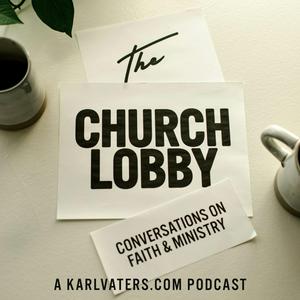
Get the free radio.net app
- Stations and podcasts to bookmark
- Stream via Wi-Fi or Bluetooth
- Supports Carplay & Android Auto
- Many other app features
Get the free radio.net app
- Stations and podcasts to bookmark
- Stream via Wi-Fi or Bluetooth
- Supports Carplay & Android Auto
- Many other app features


The Church Lobby
Scan code,
download the app,
start listening.
download the app,
start listening.


